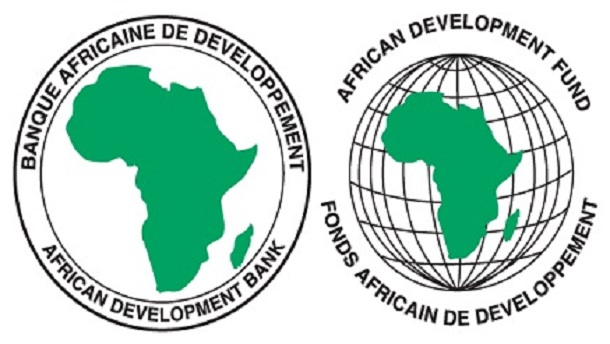General News
AfDB, OpenOil Launch Report on How African Governments Manage Extractive Resources.


African Development Bank (AfDB) and OpenOil, a Berlin-based financial analysis firm, have jointly produced a report on how African governments use financial models to manage oil & gas and mining projects.
The report was launched at the 13th Annual General Meeting of the Intergovernmental Forum on Mining, Minerals, Metals and Sustainable Development (IGF) in Geneva, Switzerland.
Over 150 experts and representatives of international development institutions, governments, civil society and extractives companies attended the launch.
These included the World Bank, United Nations Environment Programme (UNEP), United Nations Development Programme (UNDP), United Nations Conference on Trade and Development (UNCTAD), Organisation for Economic Co-operation and Development (OECD).
Mining companies and miners’ associations such as Newmont Mining Corporation, AngloGold Ashanti, Anglo American and International Council on Mining and Metals (ICMM) also attended.
The joint report was presented by Pietro Toigo of the AfDB’s African Natural Resources Center and Olumide Abimbola from OpenOil.
“This report is the first of its kind in Africa and we hope that it will stir debate within the continent’s mining sector and contribute to countries getting more out of their mining projects,” they told the participants.
The report, Running the Numbers: How African Governments Model Extractive Projects, analyses the capacity of 19 African resource-rich countries to use financial models, which simulate a simplified version of a real-world project in order to determine their financial benefits to the countries.
AfDB and OpenOil conducted a survey of nearly 50 government officials to illustrate not only how widespread use of financial models is, but also how their results are utilised to inform policy.
“Financial models are essential throughout the life-cycle of extractive projects,” said Johnny West, Director of OpenOil.
“They are not just important during the development of the fiscal regime, but also for the negotiation of fiscal terms with companies, for revenue forecasting, and for auditing and tax-gap analysis.”
“This report not only stresses the need for African Governments to make efforts to close the information gap with extractive companies, but also shows where there are capacity gaps and how those gaps could be addressed,” Traore said, urging development partners to invest more in capacity building.
Also, there is a substantial gap in access to data that are key inputs for financial models in African countries, with the largest gaps in assessing information on capital costs and operating costs of projects.
In addition to the need to build in-house financial modelling capacity, the report suggests that governments need to improve internal business processes and address the large gap that the report shows exist between information available to different agencies, departments and ministries.
“This study forms a crucial part of the Center’s support to African countries in realising the full potential of their natural resources”, Traore said.
“How are countries supposed to enter into negotiations with extraction companies that use financial models if the governments of such countries are not in possession of the latest and best models to calculate what a potential project is worth?” Toigo asked.
The report also encourages development partners to make capacity building in financial modeling a more significant part of their support to the management of extractive resources.
Partners doing so already were encouraged to not just supply financial models as part of isolated technical assistance, but to also invest in equipping government officials with skills to create and use models.
General News
NOTAP Urges South Eastern Entrepreneurs to Embrace Franchising as Business Model

Dr. Obiageli Amadiobi, director general and chief executive officer, National Office for Technology Acquisition and Promotion (NOTAP), has advocated Franchising as a sustainable business model for the South East entrepreneurs.

Dr. Obiageli Amadiobi, DG/CEO, NOTAP
She made this call during a one-day sensitization and unveiling of the NOTAP Franchising Guidelines for south east stakeholders and entrepreneurs for a successful franchising business.
The DG who was represented at the event by Mr. Emeka Orji, head of Department Corporate Planning (CP) Department, NOTAP, said that franchising business model had globally been proven to be successfully sustainable due to low business risks associated with it.
She defines franchising as a contractual business relationship between a licensor (the franchisor) and a licensee (the franchisee) that allows the business owner to use the licensor’s brand and methods of doing business to distribute products or provide services to consumers.
She added that in essence, the franchisee pays the franchisor for the opportunity to use his established business model and brand name in running his business.
Dr. Amadiobi said the essence of the workshop was not just organised to explore the possibility of adopting franchising as a strategic platform to transform local dreams into national and global business realities.
She described the programme as an opportunity for business owners and intending entrepreneurs from the Zone to latch into the huge and untapped potentials provided by franchising business models in becoming business and brand ambassadors.
With over 800,000 franchise establishments across the globe, generating trillions in revenue, she described Franchising as a pathway to economic empowerment.
General News
FG Launches Online Citizenship, Business Management Portal to Enhance Transparency, Service Delivery
The Federal Government has launched a new Online Citizenship and Business Management Platform, in a bid to boost transparency, operational efficiency, and service delivery. The initiative, unveiled by the Ministry of Interior, is in line with the Renewed Hope Agenda of President Bola Ahmed Tinubu.
![]()
The platform is designed to simplify and accelerate the processing of citizenship and business-related services, allowing individuals and corporate entities to carry out transactions seamlessly from anywhere in the world.
According to a statement issued by Magdalene Ajani, Permanent Secretary of the Ministry, the digital platform represents a significant milestone in the Ministry’s ongoing reform agenda.
It noted that the new system would drastically reduce bureaucratic bottlenecks, enhance user experience, and improve turnaround time for applications. “The Ministry is committed to promoting a more efficient, transparent, and secure framework for citizenship administration.
“This digital transformation is a testament to our resolve to improve public service delivery through the use of technology”, the statement reads.
Members of the public, private organisations, and other stakeholders can now access the platform through the Ministry’s official website: https://interior.gov.ng, or directly via the portal: https://candb.interior.gov.ng. For technical support or inquiries, users can contact: candb-support@interior.gov.ng.
The Ministry emphasised that the launch of this platform is just one of several digital initiatives aimed at transforming the nation’s administrative processes and aligning them with global best practices.
Observers believe the platform could become a game-changer in reducing red tape and promoting a more investor-friendly environment in Nigeria, particularly in areas involving citizenship acquisition and business operations.
General News
NITDA DG says its Community IT Centres Should be a Catalyst of Change

Kashifu Inuwa Abdullahi, director general of National Information Technology Development Agency (NITDA) has said that the 18 community IT centre the agency has built in the past two years are meant to be a beacon of calls and catalyst of change in those communities where they are cited.

He sated this at the commissioning/handing over of IT centre at Akesan area in Lagos. He noted that the IT centres, Innovation hubs among others are part of digital literacy programme of the agency.
“This center is designed and build to help Akesan community to be part of the digital economy, because the President is big and loud when it comes to national prosperity and inclusivity.
“Our target is to build more than 1600 across the country. We want every community every Nigerian to be part of this national prosperity and inclusivity when it comes to digital economy.
“Today, we are here to commission it, to ensure and encourage you to put it in a good use, because we call it a community center means that we want everybody to be part of it. We don’t want it to be suited in a school where the school will lock it for only students and the staff.
“That’s why we located it in the community. Schools can be part of it. Our senior citizens can be part of it. Our religious centers also can be part of it to learn.
“We want it to be a beacon of call as well as a catalyst of change in this community. We want to see more information technology gurus coming from Akesan community. So, I want to encourage you to also come with a sustainability model so that the center will be on. It is on because when you invest in this kind of infrastructure, we don’t want to be called when there are small things that we should come and fix it. That’s why we are handing it over to the community so that the community can put it in a good use. The community can find a way to make it self-sustaining,” he said.
Dr. ‘Bosun Tijani, Honourable Minister of Communications, Innovation & Digital Economy, the NITDA Community Centre in Lagos, a space that is more than just a building. It is a strategic extension of our national mission – a bridge between the Federal Government’s digital economy policies and the unmatched energy, ingenuity, and innovation that Lagos represents.
The minister who was represented by Mr. Johnson Bareyei, director, e-governmance in the ministry, added that his ministry is committed to promoting inclusivity through capacity building initiatives like the 3MTT programme.
“We are also developing the National Digital Economy & e-Governance Bill, which is a robust legislative framework that will help guide our everyday engagement online.
“Our work at the Ministry also includes Project BRIDGE, our ambitious effort to improve interconnectivity by deploying 90,000km of fibre-optic cable across Nigeria. This is a critical imperative as we work towards making Nigeria a $1trillion economy powered by innovation, infrastructure, and inclusive growth,” he said.

 Telecom2 days ago
Telecom2 days ago₦800 Billion Infrastructure Plan Set to Boost MTN’s Network Quality Nationwide

 E-Business2 days ago
E-Business2 days agoNITDA, CISCO Empower Youth with Digital Skills

 News2 days ago
News2 days agoCreative Economy Ministry Secures $300M Investments Commitment

 Telecom2 days ago
Telecom2 days agoAfrican Women Hit Hardest as Mobile Internet Gender Gap Persists

 E-Financial2 days ago
E-Financial2 days agoFidelity Bank reclaims trillion-naira market cap as stock rises to ₦21

 General News2 days ago
General News2 days agoNITDA DG says its Community IT Centres Should be a Catalyst of Change

 Telecom2 days ago
Telecom2 days agoRemita’s Bold Leap: Nigeria’s Fintech Giant Expands Across Africa

 E-Financial2 days ago
E-Financial2 days agoKuda Co-founder Urges Young Developers to Build Tech with Purpose @NACOSS 2025






















